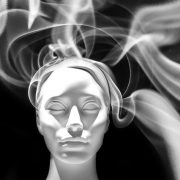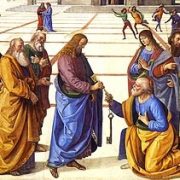There is no official statement, but a persisting rumor circulating in Beijing avers that President Xi Jinping in the past six years was the target of a score of assassination attempts.
In China and abroad, some claim that his rule, too authoritarian and going against the interests of many in the present bureaucracy, should be toppled. Others contend that the Communist Party should stop ruling Beijing altogether, and many propose that China is just too big to be one and perhaps it should be divided into a dozen or so smaller republics.
The latter hypothesis seems far-fetched. In the past 70 years, the communist state proved its resilience and knack for adaptation and a revolution looks still far away (see China: in the Name of Law. A New Global Order, 2016).
Certainly, there is mounting opposition to Xi Jinping’s administration. This opposition considers the issue of getting rid of the top leader according to the rules of the system: you can’t peacefully vote him out of power, you must use force – you have to stage a coup and take him out. So the attempts on his life were most likely real, and communist China has a history of attempted coups. But did they succeed in their goals? And how were they staged?
We shall go through the most famous ones and see how it worked in the past.
Mao’s rule of “coup”
The first serious shock to the Communist Party after taking power in 1949 came with the political demise of Gao Gang. He was the political proconsul of northeast China, then the industrial heartland of the country. He was rumored to be very close to the Soviets, and his fall from grace occurred in 1954, just a year after the death of Stalin. He was singled out by Zhou Enlai and Liu Shaoqi, and Mao approved his fall. Through this, the Chinese Communist Party managed to gain greater power over the northeast and create some distance with the overbearing USSR, which had recently pushed Beijing into the Korean war.
The second movement took place in 1957 with the anti-rightist movement. It was as if Mao, after having isolated the pro-Moscow faction, wanted to drive out those who were too liberal for his party. Between 1959 and 1961, however, Liu Shaoqi organized successful “putsch” against Mao. He first replaced him as president of the country in ’59, and in ’61 he was publicly announced as Mao’s heir apparent. Liu in the following years managed to wrest control of the state from the hands of Mao, who had been a great revolutionary but a bad state manager.
Starting with the Cultural Revolution in 1966, however, Mao took back control of the country and the party and eliminated Liu Shaoqi. A following attempt on Mao’s power took place in 1971, when Mao’s apparent heir Lin Biao tried to mobilize the army and seize Mao. His plot was discovered, he was forced to try to flee to the Soviet Union, but on his way, his plane was shot down.
In all of these examples, Mao Zedong first tried to eliminate his enemies, and then two of his allies tried to take him on but failed, because ultimately Mao retained all the levers of power, and his challengers didn’t enjoy the same strengths.
Coup and power struggle with Deng
With the arrest of the Gang of Four in 1976, we are following a similar pattern. Then party chairman Hua Guofeng, army chief Ye Jianying, and security head Wang Dongxing plotted to arrest four fellow Politburo members who were then called the Gang of Four and blamed them for the horrors of the Cultural Revolution. In this case, although not one man held all the power, as Mao did in his time, the three main plotters controlled all the crucial elements: the party organization, the army, and the personal security of the people arrested.
In the following years, Ye Jianying brought Deng Xiaoping back from the internal exile, and after a couple of years of internal arm-wrestling, a new faction of people headed by Deng managed to sidestep Hua Guofeng and Wang Dongxing. The two however were not arrested and didn’t lose their party privileges, but had to give in to the massive pressure of the army backing Deng and following Ye.
After that there was public turmoil and protests, reflecting divisions in the inner circles, like the Democracy Wall in the early 1980s and the Shanghai student movement in 1986, which led to Hu Yabang’s sacking as party secretary.
The situation remained peaceful basically until 1989, when the students’ movement in Tiananmen Square was used as a pawn in the complex power struggle pitting Party Secretary Zhao Ziyang and against paramount leader Deng.
Zhao was eventually defeated because Deng controlled the army and through this controlled the party. But a division of power between party, army, and state was seen as the root that generated the chaos and confusion of Tiananmen. Officials claimed they didn’t know whom to follow and obey, whether the party, headed by Zhao, or the army, headed by Deng. From then on, it was decided that one man, in this case Jiang Zemin, would lead them all. Yet, until early 1995, when Deng had a stroke, despite all official titles, Deng remained China’s ultimate guide.
A “peaceful” transition of power
The next massive shock to the party occurred in 1999 with the protest and then the crackdown on the Falun Gong. The movement was used possibly as an excuse to get rid of the mighty Qiao Shi. Qiao had officially retired in 1998, but he was far more influential than his rival Jiang, and the security breach that led to the Falun Gong demonstrations was blamed on Qiao, who had been responsible for intelligence in the past. In any case, Jiang used the demonstration to curb most of Qiao’s clout in the party.
The 2002–2004 “smooth transition” of power from Jiang to Hu Jintao actually hid a new political settlement in China, one that put Jiang in the position of some kind of paramount leader and Hu in the place of a manager of the will of his elderly boss and the fellow retired .
In the following decade, power became spread out and nobody was clearly in charge. Each Politburo member was the ultimate decision-maker about his brief, and when something of his interest overlapped with other people’s briefs, there would be horse trading in the Politburo. In this confusing atmosphere, Chongqing party leader Bo Xilai made his run for power in 2012–13. Apparently, the plan was to replace Zhou Yongkang as security chief, enter the Standing Committee of the Politburo, and from there corner Xi Jinping, who had been appointed party secretary but was five years younger than Bo.
This attempt failed and Xi, supported by Hu Jintao and then prime minister Wen Jiabao, managed to wrest real, full control of the party, in a way that only Mao had done before him.
Xi is now sitting on all the levers of power in China, and since he took on the party leadership, his power has increased vastly. The anticorruption campaign, which certainly has real value in getting rid of excessive corruption, also has political worth: eliminating and intimidating those who are not following Xi closely.
Then, the transition of power from Jiang to Hu had been peaceful, but it was no real transition, the old and the new power levers were confused into each other leading to chaos and stalemate, the breeding ground for swelling corruption.
Communist Party, a history of coups
From the history of the Communist Party so far, we can see that the party lived through many coups; however, all these coups were defeated by the men on the top.
Mao, Hua Guofeng, Deng Xiaoping: never, ever did the number-two man manage to really dent the power of the number-one. With hindsight, some coups might have been possibly set up by the number-one guy to get rid of possible challengers.
The only exceptions to this were Liu Shaoqi, who successfully sidelined Mao Zedong for a few years in the ‘60s, and Xi Jinping, who succeeded in concentrating power in his hands while his power was still uncertain. In this situation, it is quite unlikely that someone could manage to overthrow Xi Jinping now. He has too much power, and his enemies are faceless and jumbled.
However, the situation of China now is very different from the past. The society, unlike with Mao or Deng, is very complex; international forces are now interested in developments in Beijing; and many of the rich and powerful in China have an ax to grind with Xi and would like to replace him.
Moreover, the constant, hidden power struggle, which can overturn past decisions overnight, poisons any mid- and long-term investment environment. Who can make long-term plans for his company when those plans can be upended overnight, and when the ways to do business are murky and change with every political party leader on top, who changes god knows how? This is very true for foreigners, but also for Chinese private investors, who have been the engine of growth in the past 40 years.
Finally, in the past 70 years of communist rule, no leader succeeded in having his legacy maintained – not even Mao managed it. That is, if Xi doesn’t change the system, no matter what he does during his tenure, it will be overturned once he is out of power.





